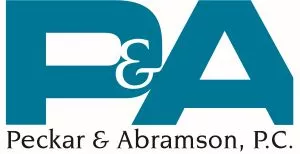- with readers working within the Media & Information and Property industries
Will the terms of my operating agreement control valuation of my member interest in any future dispute even where the members have failed to follow it in the past? In short, probably.
Think of the operating agreement for your limited liability company as the key to any future dispute with your co-members. In a recently published decision by the Presiding Judge of Chancery in Bergen County (J. Jerejian), this was made abundantly clear.
Namerow v. Pediatricare Assocs., LLC
In Namerow v. Pediatricare Assocs., LLC, a dispute arose between physicians concerning their LLC formed to operate a medical practice. The parties had a written operating agreement. The agreement granted each member a right to retire at 60 years of age. Also, the agreement established that the "retirement purchase price" was to be calculated in another section titled "Determination of Value". Further, the agreement had a procedure whereby the members agreed upon a "Certificate of Agreed Value" each year and signed it. However, if they could not agree to this certified value for a period of two years, then the agreement had a formula for arriving at the value of a retiring member's interest.
In 2016, the plaintiff announced that he was retiring. As such, this was the first physician to reach retirement and trigger a buyout. Unfortunately for him, the last agreed-upon Certificate of Agreed Value was sixteen years prior. At that time, the parties each tasked accounting firms with determining the "fair market valuation" of the business. This was an attempt to reach a settlement. The record showed that the members had ignored the Certificate of Agreed Value concept in the past. Rather, they utilized a fair value concept in connection with business and financial planning. They also used this concept in their discussions over succession planning.
The Operating Agreement Prevailed
When the members could not agree on a buyout figure, the retiring member sued to try to impose a fair market value on the other members. Additionally, he sued for oppression. The Court dismissed the claims, finding that there could be no deviation from the agreed-upon method of valuation without a formal amendment of the operating agreement.
In conclusion, the text of an operating agreement will be controlling, although sometimes where there are gaps the LLC Act may fill those in.
The content of this article is intended to provide a general guide to the subject matter. Specialist advice should be sought about your specific circumstances.


